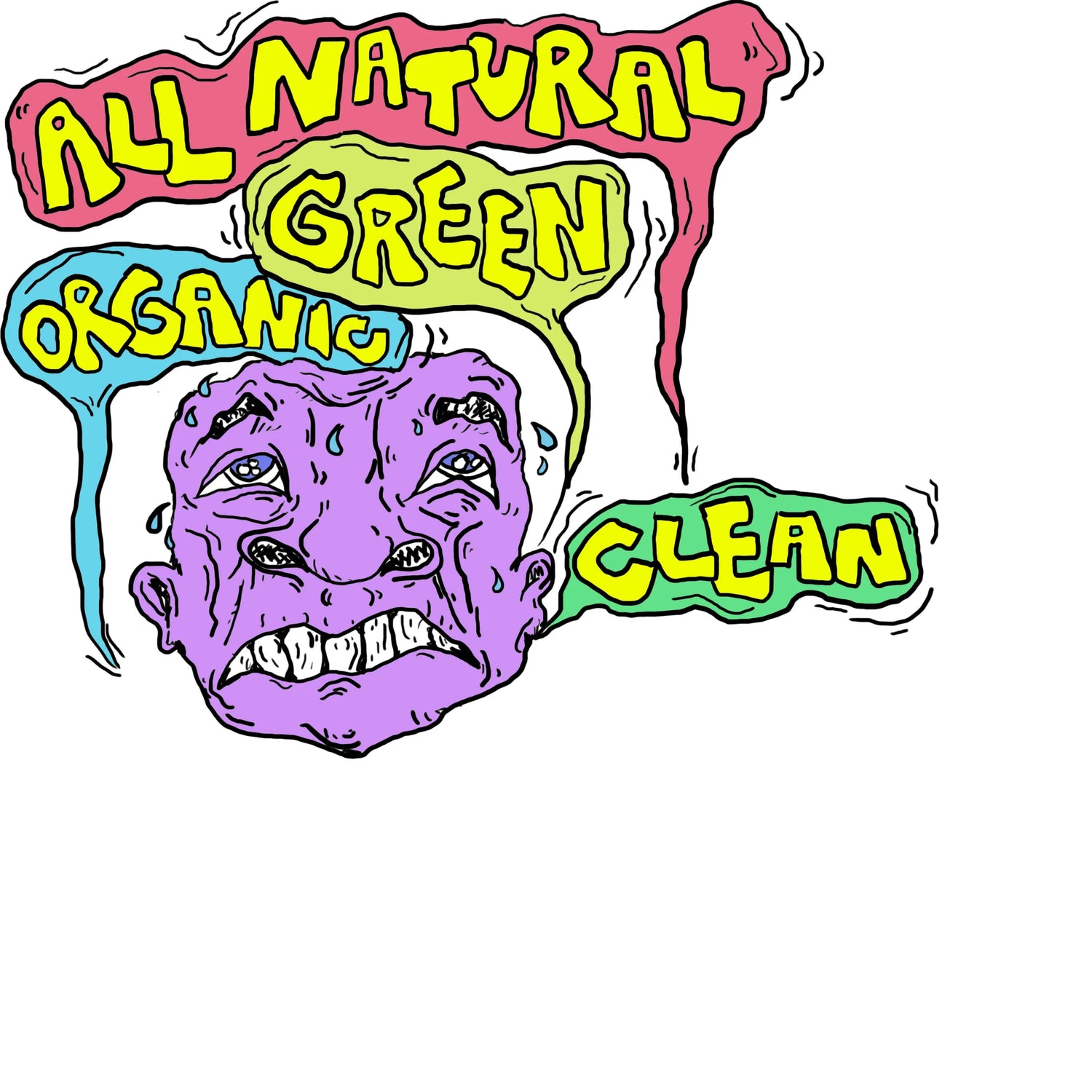
The greenwashing of natural Beauty
The beauty industry has a dirty little trick up its sleeve, and it's probably gotten to you. What are "green" products? What are "clean" products? What are "natural" products? While the answers to these questions should be self-explanatory, the beauty industry has completely turned it all around. Nine times out of ten, those compelling labels promoting "natural beauty" are worth absolutely nothing. So what now?
ARTWORK CAMO @camopantsdrawn
TEXT KASHA LASSIEN @kashalassien
How many times have you found yourself down the cosmetics aisle looking for a new “all natural” product to add to your beauty routine? How often have you left feeling accomplished because your new moisturizer was designed to save your skin AND the sea turtles? (Two for one)! How often have you discovered later down the line that your newly favorite “all natural” moisturizer wasn’t actually natural or sustainable at all? That you'd been duped by clever verbiage and pretty colors yet again? Don’t worry, I’m right there with you.
Millions of marketing dollars have been dumped into these products, all using buzz worthy words like “clean”, “all natural”, “green”, “organic”, etc. What beauty companies know is that just seeing or hearing those words is sometimes enough to gain the trust of an average consumer who is actually completely oblivious to what they've just purchased. However, as global awareness increases, so does consumers’ knowledge, and the demand for cleaner, sustainable, and more natural beauty products. While brands race to meet these new standards in hopes of changing consumer perception, many corners are cut along the way, which only breeds the capitalization of consumer vulnerability.
While that all sounds terrible, it's nothing compared to the horrors happening behind the scenes. The beauty industry continuously practices the exploitation of labor and is a prime example of the illegal harvesting practices that are destroying our Earthly home. Many times, as the demand for the new “it” ingredient grows, so does the need for quick turn arounds to capitalize and increase the value of the product. This often leads to illegal harvesting and the exploitation of locals who are indigenous to the lands where the ingredient is from. The knowledge and skill set necessary to harvest the ingredients from the plants properly that these indigenous people's possess puts them at risk. They end up working long hours for small payouts in comparison to the premium prices that beauty brands are demanding for their product. All this is done while simultaneously destroying the lands and habitats these “it” ingredients are indigenous to.
Anytime we take from the Earth using illegal harvesting practices instead of finding ways to preserve the life and function of a plant, then it is not sustainable! Over harvesting is not a sustainable practice.
The Food and Drug Administration (FDA), who along with the Federal Trade Commission (FTC) is responsible for regulating cosmetics labeling, has not yet defined the term “natural” as it relates to cosmetic labeling. What does this mean? It means brands can create their own definition of natural. It means that a product can have one “natural” ingredient in it, and still make claims that it is 100% natural.
What about our “organic” products, you say? Realistically, only a handful of products should truly be considered organic. If a cosmetic product has 95-100% organic agricultural material, it may be considered organic. For this reason, several different organizations have created their own ideals about what should and shouldn’t be considered organic. Brands who choose to follow the outlines set forth by these organizations can pay a fee and be awarded a certificate and an official seal stamped onto their products for your viewing pleasure. In this scenario, many man-made chemical modifications of natural ingredients are still allowed in the products.
What about “clean” beauty products? Clean is just another term that hasn’t yet been defined.
As the consumer, we are the ones who must decide and set the bar of what we will, and will not, accept from brands. Now, when we look for clean products, we should be looking for products that don’t include any ingredients that have ever posed any potential threat to human health, or to the health of the environment. We should make sure that the ingredients have been sourced ethically and sustainably. It's quite obvious that our regulators are in no rush to actually regulate, so we need to become knowledgeable. We need to do the research. We must take the first step and hold these beauty brands accountable for the greenwashing of natural beauty.

